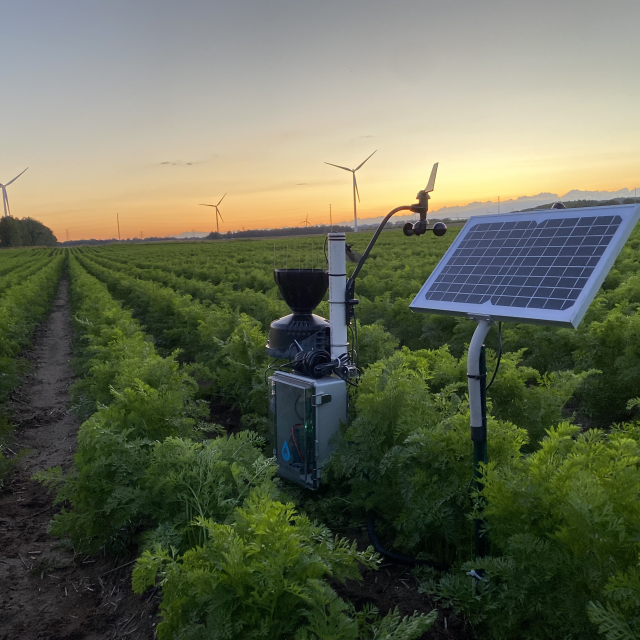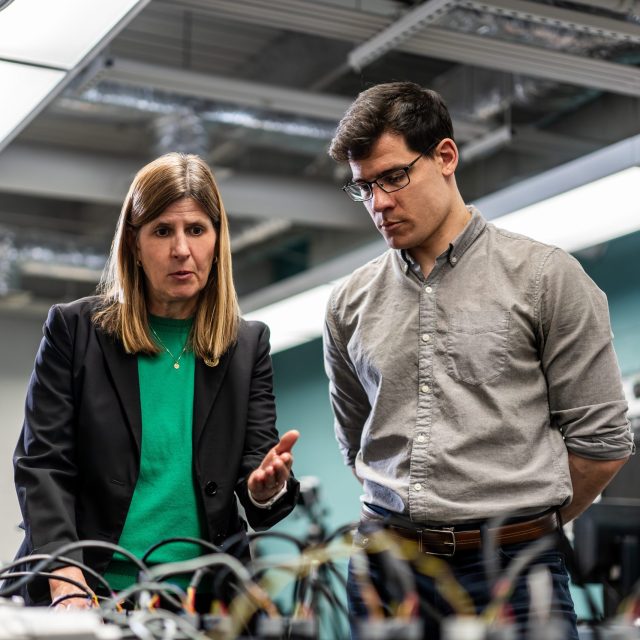
Translational Funding Initiatives

What is Translational Funding?
Translational funding bridges the gap between academic research and real-world impact. It provides critical financial support to help move promising innovations from the lab bench to the marketplace, transforming ideas into products, services, and technologies that benefit society.
At Michigan State University, translational funding empowers faculty innovators to take the next step in their research journey. Whether you’re developing a new medical device, agricultural technology, or software solution, these funds help you validate your concept, build prototypes, conduct market research, and attract industry partners or investors.
Academic research often generates groundbreaking discoveries, but many of these innovations never reach the public due to a lack of early-stage funding. Translational funding addresses this challenge by reducing the risk associated with new technologies, making them more appealing to investors and industry partners. It also helps accelerate the journey from concept to market by supporting essential steps like proof-of-concept validation and prototype development. By translating research into practical applications, translational funding amplifies the societal impact of academic work. Additionally, it strengthens future funding proposals by generating the preliminary data and results needed to compete for larger grants.
For MSU faculty, translational funding offers a powerful combination of financial support and strategic resources. It connects researchers with commercialization experts at the MSU Innovation Center, providing guidance on how to navigate the path to market. Faculty also gain opportunities to collaborate with industry leaders and entrepreneurial mentors, expanding the reach and relevance of their work. This support increases the visibility of their research both within the university and in broader innovation ecosystems. Importantly, translational funding also helps protect intellectual property and develop licensing strategies, ensuring that innovations are not only impactful but also sustainable.
- Ensure an up-to-date invention disclosure and that the technology is unlicensed IP.
- Must have an initial proof-of-concept (a component-level demonstration is acceptable).
- Clearly define a customer or market hypothesis.
- Adhere to the program’s scope and timing limitations.
- Maintain active engagement with your Technology Manager throughout the project.
- Conduct milestone-based technical derisking activities that meaningfully advance the technology.
- Perform milestone-based market hypothesis testing, including direct customer engagement.
- Focus efforts on the development and derisking of technologies, prototypes, or clinical candidates.
- Provide quarterly project updates to the Translational Funding (TF) team and submit a final report.
- Submit semi-annual reports tracking key translational metrics.
- Funding is primarily focused on derisking technology and intellectual property, rather than supporting staff, publications, or training activities.
- All translational research grants require a shared funding match between the MSU Innovation Center and the relevant college or department.
- Only one award is permitted per technology for each Stage 1–2 grant type.
- Each program allows for small-scale risk assessment experiments (typically under $10,000) to support decision-making.
- All MTRAC programs offer a Full Grant option, though not all include a Starter Grant equivalent.
MSU Translational Funding Programs
MSU hosts a series of stage-gate and milestone-based translational funding programs designed to support the derisking and development of high-impact technologies with commercial potential. The Stage 1 and Stage 2 programs have a statewide scope, while the Stage 3 program is exclusive to MSU researchers.
Below are the commercialization and derisking funding opportunities available for your technology. Before applying, please contact the technology manager or program staff to determine which program best suits your project needs.
For more details on each program, please click the individual programs below.

Proof of Concept
The MSU Innovation Center proudly manages the University Early-Stage Proof-of-Concept Fund, known as the Advance Grant Program, on behalf of all public universities in Michigan. Sponsored by the MEDC, this program encourages faculty with early-stage technologies to engage with their university’s Technology Transfer Office (TTO) and pursue commercialization opportunities. Through Advance funding, technologies, inventors, and TTOs can achieve key early milestones such as proof-of-concept development or market validation, paving the way for future commercialization efforts.

Testing/Development
The MTRAC program is a statewide initiative funded by the MEDC that aims to accelerate the commercialization of university research. It provides early-stage funding and support for proof-of-concept development, prototype creation, and market validation. The program operates through specialized Innovation Hubs at various Michigan universities, each focusing on a specific sector such as life sciences, advanced transportation, agriculture, or advanced materials. MTRAC fosters collaboration between researchers, TTOs, and industry to bring innovative solutions to market more efficiently.

Validation
The Tech-Dev (TD) is a gap funding program designed to accelerate the advancement of MSU technologies with strong commercial potential. Managed by MSU Technologies (MSUT), the program provides funding to enhance, optimize, or further develop selected intellectual property, helping transform promising innovations into market-ready products. TD awards are strategically targeted to boost commercialization opportunities, including licensing, marketing, startup creation, and other business development initiatives.
- Translational Finding inquiries can be initiated by either the Principal Investigator (PI) or the Technology Manager (typically via Zoom).
- Proposal review by the Translational Funding Initiatives team is strongly recommended before submission.
- Proposal submission requirements:
- Signatures from both the PI and the Tech Manager.
- Pre-approval of matching fund requirements via a simple cover sheet process.
- Evaluation criteria:
- Based on technical and commercial derisking and development metrics.
- Focused on IP-protectable and commercially viable technologies.
- Not intended for basic science or general lab support.
- Evaluation process:
- At least three reviewers per proposal, typically external experts.
- Internal reviewers may be included when beneficial.
- Reviews are based primarily on the evidence presented in the proposal.
- Review timeline: Initial reviews are expected within 30–45 days of receipt.
- Project launch:
- Begins only after confirmation of milestones, timeline, and progress update plan.
- Projects should commence within 30–60 days of approval (ideally within 30 days).
- No delays permitted for hiring staff.



